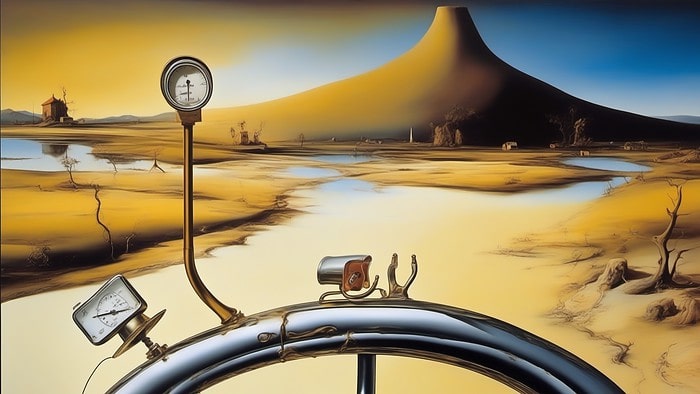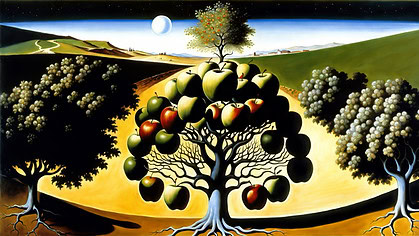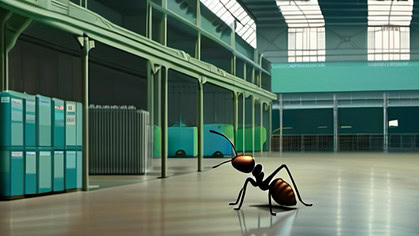My first car was a blue Trabant 601. Who knows, knows. And I will never forget my first drive through the euphorically united Germany with it!
The »Trabbi« was even too slow for the truck lane. This meant that at some point, I was driving behind one of the few even slower trucks, while another impatient truck piled up behind me, and a wall of angry trucks slowly passed us on the left.
I was a novice driver. My hands clung to the plastic steering wheel. I was »protected« by nothing more than some questionable cardboard.
And then came the hill. My Trabant became even slower, the trucks behind and beside me even angrier.
Let’s just say this: It’s a good thing I was studying theology back then and could pray for pine assistance.
Yes, a Trabant on the western autobahn traffic could truly teach one to pray as well as instill new faith.
It had its drawbacks too
However, the leisurely speed of the plastic sedan wasn’t the only challenge. There was, for instance, refueling with a gasoline-oil mixture, for which you had to lift the hood.
But when exactly should you refuel? Well, my Trabant didn’t have a fuel gauge.
I at least had an indication of the estimated current consumption. And of course, the speedometer with the odometer. So, I had to estimate how much gasoline was left in the tank.
But to avoid running out of fuel, the Trabant had a very important switch: from the regular tank to the reserve tank. (It was the same tank, but you could access the last five liters by switching.)
When the engine cut out and the pedal went down without any reaction, you could switch to reserve and then head to the next gas station or refuel the tank in another way.
Most of the time, I preferred to top up the tank regularly. But if the engine ever started to sputter, I would switch to reserve. The system worked fine as long as you had an understanding of your little car and its special needs.
Unless, of course, as a driver, you had made a potentially disastrous mistake.
It could happen that you had accidentally left the switch on reserve all the time. Heaven forbid, the switch was set wrong, you thought you were in the main tank, but you were actually running on reserve!
Once or twice, I caught it in time and switched back to the main tank.
And once, apparently, I had some »higher assistance« because when the engine started to »cough,« a gas station was in sight, and I only had to push the last 10 meters to the pump.
Luckily, pushing a feather-light Trabant was quite easy. The strangest thing about the situation was that no one seemed to mind if someone pushed their Trabant to refuel. Maybe the West Germans thought that’s how the East Germans always did it.
And even though it turned out fine for me that time, I can still remember the shock, the moment I realized I had been running on reserve the whole time, and now that was empty too.
We, on reserve
When I talk to people these days, when I read the news, when I imagine what they will say about us in a hundred years, I can’t help but think of my panic in the Trabant.
Could it be that our time is running out, that without realizing it, we are already running on reserve?
And I ask it for us, for many meanings of the words »we« and »us«: we as a society, as a country, as »the West« with its »values«: How certain are we that we haven’t accidentally switched to »reserve« already, and that our cute cardboard car is chugging through the brave new world on its last drops of gasoline-oil mixture? Hasn’t the engine already started to stutter and cough?
If we suddenly became aware that we have long been »running on reserve,« that our time and opportunities have actually expired, then today, I would at least enjoy the view and do something beautiful with dear people. The day should have been worth its hours.
Perhaps a gas station will suddenly appear – perhaps not.
Every kilometer of our journey happens only once, every minute is a gift given to us only once, and if we should indeed be running on reserve, then every given minute is all the more valuable.















